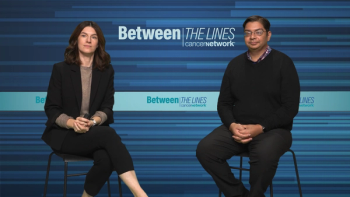
Reviews the decade-long progress in EGFR-targeted therapies and introduces the rationale for first-line dual inhibition.

Your AI-Trained Oncology Knowledge Connection!


Reviews the decade-long progress in EGFR-targeted therapies and introduces the rationale for first-line dual inhibition.
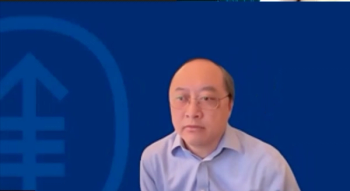
Melphalan, BCNU, vitamin B12, and ascorbic acid plus ASCT show promise for patients with metastatic PDAC, according to results from the SHARON trial.

Panelists discuss how patients relapsing shortly after BCMA CAR T-cell therapy should receive GPRC5D-targeted bispecifics rather than repeat BCMA therapies, given the evidence that prior BCMA exposure reduces efficacy of subsequent BCMA-directed treatments.
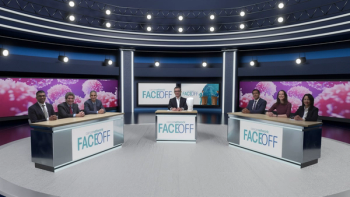
Panelists discuss how the future of stage III non–small cell lung cancer treatment may shift from concurrent chemoradiotherapy toward sequential approaches with upfront systemic intensification (chemotherapy plus immunotherapy) followed by ablative radiation, mirroring successful surgical paradigms while acknowledging that concurrent therapy remains the current standard until proven otherwise.
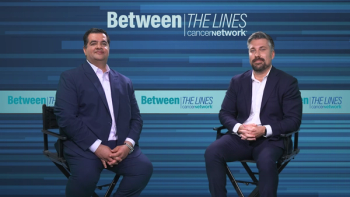
Experts discuss how second-generation Bruton tyrosine kinase (BTK) inhibitors have enhanced chronic lymphocytic leukemia (CLL) management by offering improved tolerability and flexible dosing strategies that allow personalized, long-term therapy with manageable adverse effects and effective toxicity mitigation, thereby maintaining disease control while preserving patients’ quality of life.

Lower- and middle-income countries must work to build trust with pharmaceutical companies to enhance representation in cancer-related clinical trials.
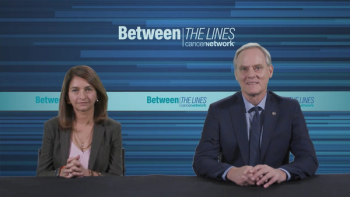
Panelists discuss how risk stratification using cytogenetic and molecular markers is vital to tailoring NDMM therapy and improving long-term outcomes.

Panelists discuss how quadruplet therapy has become the new benchmark for NDMM, offering deeper and more durable responses than previous triplet regimens.
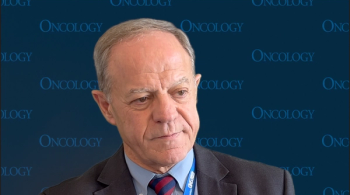
Immunotherapy-based combinations may elicit a synergistic effect that surpasses monotherapy outcomes among patients with muscle-invasive bladder cancer.
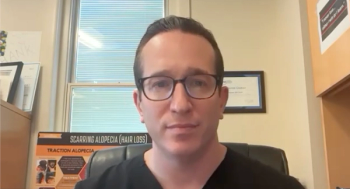
Adam Friedman, MD, FAAD, discusses systemic barriers to timely dermatologic consultation for patients with cancer.
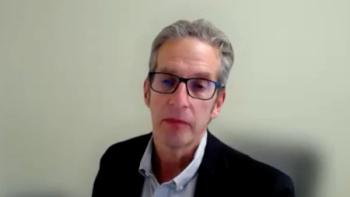
A new partnership agreement involving AI use may help spread radiotherapeutic standards from academic centers to more patients in community-based practices.

Adam Friedman, MD, FAAD, discusses essential communication strategies for oncologists to address patient fears about dermatologic adverse effects.
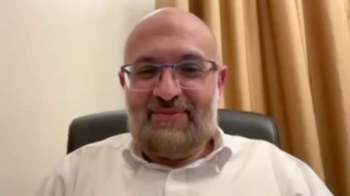
In areas that have a higher incidence of genetic conditions, experts across different fields have to collaborate to develop cures and therapies.

Recent findings presented at ASTRO 2025 suggest an “exciting opportunity” to expand the role of radiation oncology in different nonmalignant indications.

The 3 most likely directions of radiotherapy advancements come from new technology, combinations with immunotherapy, and the incorporation of particle therapy.
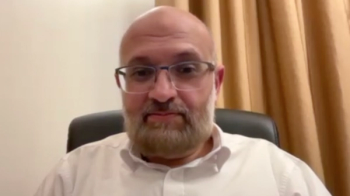
Talent shortages in the manufacturing and administration of cellular therapies are problems that must be addressed at the level of each country.
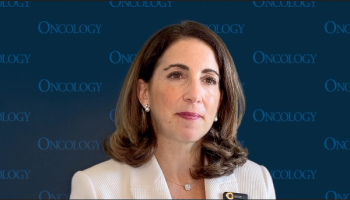
Administering oral SERD-based regimens may enhance patients’ quality of life when undergoing treatment for ER-positive, HER2-negative breast cancer.

Panelists discuss how a triple class–exposed patient with comorbidities like COPD represents an ideal candidate for BCMA-directed bispecific therapy over CAR T-cell therapy due to the ability to titrate dosing and manage respiratory infection risks.

Panelists discuss how community practices need clear protocols for after-hours fever management, adequate caregiver support assessment, and standardized algorithms for cytokine release syndrome treatment across multiple bispecific products.
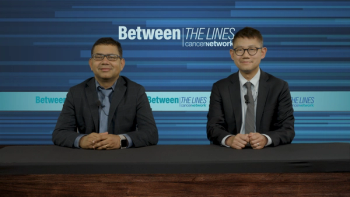
Experts discuss the growing evidence supporting outpatient administration of bispecific antibodies in multiple myeloma, emphasizing the need for multidisciplinary collaboration, patient education, and clear emergency protocols to safely expand this convenient, off-the-shelf treatment approach across disease stages, highlighting that partnerships with experienced centers and gradual implementation strategies are key to successful adoption and improved patient care.

Distance and training represent 2 major obstacles to making radiotherapy available to more patients with cancer across the world.

Panelists discuss how radiation oncologists can increase pulmonologist awareness about radiation therapy through multidisciplinary collaboration, educating colleagues about modern treatment capabilities, engaging them in fiducial placement and toxicity management, and positioning radiation oncology as both an upstream and downstream service that can help solve pulmonologists’ clinical challenges.

Experts discuss the feasibility and safety of outpatient bispecific antibody treatment for multiple myeloma, emphasizing the importance of careful patient selection, robust support systems, and multidisciplinary collaboration to manage potential complications such as cytokine release syndrome (CRS) and ensure timely care, highlighting that with these measures, outpatient administration can safely expand access while maintaining efficacy and patient convenience.
![Point-of-care manufacturing, scalable manufacturing, and bringing the cost down [can help].](https://cdn.sanity.io/images/0vv8moc6/cancernetwork/55a279b707f0cd71181a5efa8b3d3cd864555701-3002x1684.png?w=350&fit=crop&auto=format)
Those with cancer may be able to get cellular therapies more affordably if countries and health systems adopt decentralized closed-system manufacturing.

Experts discuss the growing role of time-limited Bruton tyrosine kinase (BTK) inhibitor plus venetoclax therapy for high-risk chronic lymphocytic leukemia (CLL)—particularly in patients with deletion 17p—emphasizing the SEQUOIA R&D data that support flexible, minimal residual disease (MRD)-guided treatment durations and all-oral regimens as effective, convenient, and patient-centered options for achieving deep, durable responses.

Louis Potters, MD, FASTRO, FABS, FACR, describes how evidence-based radiation protocols may integrate with novel artificial intelligence software.
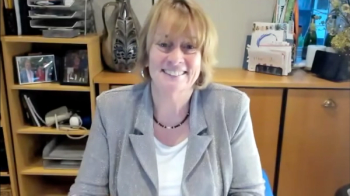
The use of enhanced imaging and adaptive radiotherapy has lessened the burden on patients with cancer receiving radiotherapy as treatment.
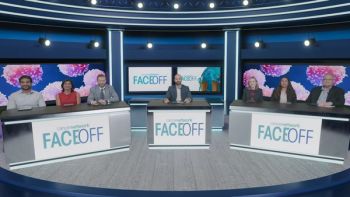
Panelists discuss how to approach case-based treatment decisions in patients with lower-risk MDS, examining a 77-year-old man with symptomatic anemia (hemoglobin, 7.6 g/dL; EPO, > 200 mU/mL; SF3B1-negative) who would benefit from luspatercept but faces insurance barriers without transfusion dependence, and a 70-year-old woman for whom erythropoiesis-stimulating agent (ESA) therapy was not successful and who requires second-line treatment. The experts debate personalized approaches considering molecular features, patient goals, and the balance between luspatercept and imetelstat based on individual clinical characteristics.
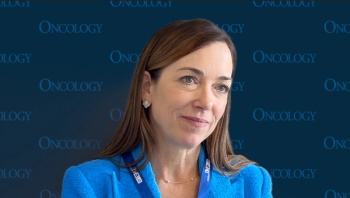
Gedatolisib-based triplet regimens may be effective among patients with prior endocrine resistance or rapid progression following frontline therapy.

Patients with cancer are subjected to fewer radiotherapy-induced toxicities because of newer, more advanced technologies.